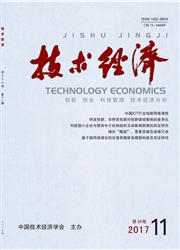

 中文摘要:
中文摘要:
近年来,中国资产价格上涨已经引起了国内外广泛关注,这与日本泡沫经济前期的情况如出一辙。良好的经济基本面、宽松的资金面和市场信心是推动中日两国资产价格上涨的共同因素。而中日两国长期实行出口导向型经济发展战略,依靠间接融资的金融体制,成为导致两国资产价格膨胀的深层次原因。与日本相比,中国资产价格膨胀可以在较大程度上化解,不会重蹈日本资产泡沫破灭的覆辙。但短时间内资产价格过快上涨,成为经济增长和金融稳定的潜在风险,为此,中国应该积极总结日本泡沫经济时期的经验教训,从日本政府的应对政策中得出重要的启示。
 英文摘要:
英文摘要:
The increasing of Chinese asset prices has intensified the concerns over its similarities to that of the early stage of Japan's bubble economy. The common driving forces for the rising asset prices in both China and Japan include good economic fundamentals, ample supply of money and strong market confidence. The deep causes, however, are the export -oriented development strategies and the finiancial systems dominated by indirect financing. This paper argues that China's increasing asset prices can be largely controlled, unnecessarily leading up to a Japanese style bubble economy. However, the short - term sharp rising of asset prices may add to potential risks for economic growth and financial stability. Japan's experiences and lessons during the period of the bubble economy can provide useful implications for China.
 同期刊论文项目
同期刊论文项目
 同项目期刊论文
同项目期刊论文
 期刊信息
期刊信息
